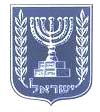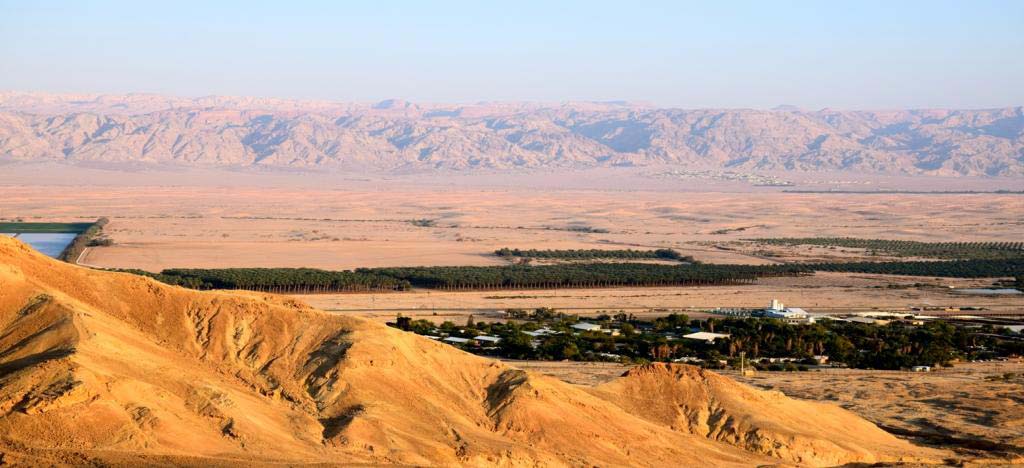Levitra enthält Vardenafil, das eine kürzere Wirkdauer als Tadalafil hat, dafür aber schnell einsetzt. Männer, die diskret bestellen möchten, suchen häufig nach levitra kaufen ohne rezept. Dabei spielt die rechtliche Lage in der Schweiz eine wichtige Rolle.
Environmental management of n.eserves_november 2016 (2).pdf




MASHAV - Israel's Agency for International
Development Cooperation
The Arava Institute for Environmental Studies
invite professionals
to participate in the
STATE OF ISRAEL
International Course:
Environmental Management
of Nature Parks and Reserves
Israel's Agency for International
Development Cooperation
November 27th – December 13th, 2016
Ministry of Foreign Affairs
החולש וגול
Environmental Studies
About the Course
Background
Ecosystem services are defined as the benefits provided by ecosystems to humans.
Ecosystem services are commonly valued in ecological, economic or social terms. They have emerged as a prominent conceptual link between environment and society. Ecosystem services have managed to bridge the gap between nature conservation for the sake of nature and the concern for people's welfare. The argument for the protection of species and ecosystems can also be made in terms of the role of ecological systems in sustaining people's livelihoods and quality of life. Understanding how protection and proper management of ecosystems benefits society is important to professionals who work in environmental management because it provides them with tools to communicate this importance to stakeholders and the public. It has been shown that when the public understands the value of ecosystems, it is easy to gain the support that is so vital to nature conservation.
This training program, to be held at the Arava Institute for Environmental Studies located on Kibbutz Ketura in the south of Israel, provides an opportunity for mid-level professionals to gain knowledge about the basics of environmental management and ecosystem services. The primary topics include the principles of ecosystem management, ecosystem services and their value. We will teach participants the vocabulary and tools to work with government offices and ministries. Our course will include lectures and seminars from ecologists, nature reserve rangers, economists, sociologists and representatives from the Israeli Ministry of Environmental Protection.
The training program will utilize the extensive knowledge of the Arava Institute Center for Hyper Arid Socio-Ecology. In this course we will explain how arid lands function and what services they provide. We will teach what ecosystem services are, give examples of how they benefit society and how better management of ecosystems benefits societies. We will discuss different management styles with an emphasis on biosphere reserves. We will show how ecosystem services can be assessed, valued, priced and be translated to management practices. We will focus on the differences in management between several types of eco-systems. The course format will also include elements of renewable energy use, sustainable agriculture and water resource management in the framework of the whole life cycle approach of the Arava Center for Sustainable Development.
x Understand the concept of ecosystem services, its terminology , the division into categories, and
its ecological, anthropological and economic aspects
x Learn how to build a management scheme based on the Ecosystems Services concept x Assess Ecosystem Services values under different circumstances and scenarios of park
x Learn the concept of a biosphere reserve and its management x Learn about off-grid technologies as supporting tools in the operation and management of
biosphere reserves
x Understand the structure and function of arid land ecosystems x Understand the pressures and conflicts on arid lands x Learn to teach rangers, government officers, and the public about Ecosystem Services x Prepare a park management plan based on the Ecosystem Services Principle
Main Subjects
x Review of the principles and concepts of Ecosystems x Using an Ecosystem Services approach to understand the importance of nature to human society x The study of human-nature interactions including the conflicts of nature conservation and
x Looking at the Israeli model of nature reserves and biosphere reserves in solving human-nature
x Gaining the necessary tools for the management of ecosystems, including financial aspects x Using a life cycle approach to resolve human-nature tensions
Application
Application Requirements
The target audience for this training program is individuals who are interested in expanding their knowledge and initiatives into ecosystem management, environmental economics, and environmental management. This training program is intended for mid-level professionals involved in nature preservation, working for government, non-governmental organizations, decision-making bodies, academia and the private sector. It will be especially beneficial to heads of rural councils and environmental officers of rural councils, government officers of environment and tourism ministries, biosphere reserve managers, park managers and rangers. The program will be conducted in English. It is essential that the participants have a high level of reading, writing and speaking in English.
Competition for the MASHAV Courses is merit-based and selection will be made on the basis of academic excellence, professional aptitude, leadership potential in the field of Environmental Management and Ecosystem Services, and knowledge of English.
Funding for the MASHAV Courses is limited and the program is highly competitive; not all qualified applicant will receive awards.
Applications should be submitted no later than September 27th, 2016. A copy of the application should be sent to the Israeli Embassy nearest to you as well as to Ms. Tali Adini of the Arava Institute: [email protected]
Application forms
Application forms and other information may be obtained at the nearest Israeli mission or at MASHAV's
website: http://mashav.mfa.gov.il/MFA/mashav/Courses/Pages/default.aspx.
Completed application forms, including the medical form, should be sent to the relevant Israeli mission in
the respective country.
General Information
Arrival and Departure
Arrival date:
Sunday November 27th, 2016
Monday November 28th, 2016
Tuesday December 13th, 2016
Wednesday December 14th, 2016
Participants must arrive at the training center on the arrival date, and leave on the departure date. Early
arrivals/late departures if required, must be arranged by the participants themselves, directly with the
hotel/center, and must be paid for by the participant him/herself.
Location and Accommodation
MASHAV awards a limited number of scholarships. The scholarship covers the cost of the training program
including lectures and field visits, full board accommodation in double rooms (two participants per room),
health insurance (see below) and transfers to and from the airport. Airfares and daily allowance are not
included in the scholarship.
The course will be held at the Arava Institute for Environmental Studies, situated at Kibbutz Ketura in the Arava Desert, a four hour drive from the center of Israel. Kibbutz Ketura is a collective community located approximately 50 kilometers from the Red Sea resort city of Eilat in the south of Israel. In Nov-Dec, the weather will be warm; temperatures will range from 20°- 30°C during the day and down to 10°C at night. For more information on Kibbutz Ketura, you can access the website at: http://ketura.org.il/
Health Services
Medical insurance covers medical services and hospitalization in case of emergency. It does not cover the
treatment of chronic or serious diseases, specific medications taken by the participant on a regular basis,
dental care and eyeglasses. Health authorities recommend that visitors to Israel make sure they have been
inoculated against tetanus in the last ten years. Subject to the full binding policy conditions. Participants are
responsible for all other expenses.
About MASHAV
MASHAV – Israel's Agency for International Development Cooperation is dedicated to providing countries
with the best of Israel's experience in development and planning. As a member of the family of nations, The
State of Israel is committed to fulfilling its responsibility to contribute to the fight against poverty and to the
global efforts to achieve sustainable development. MASHAV, representing Israel and its people, focuses its
efforts on capacity building, sharing relevant expertise accumulated during Israel's own development
experience to empower governments, communities and individuals to improve their own lives.
MASHAV's approach is to ensure social, economic and environmental sustainable development, and is
taking active part in the international community's process of shaping the Post-2015 Agenda, to define the
new set of the global Sustainable Development Goals (SDGs).
MASHAV's activities focus primarily on areas in which Israel has a competitive advantage, including
agriculture and rural development; water resources management; entrepreneurship and innovation;
community development; medicine and public health, empowerment of women and education. Professional
programs are based on a "train the trainers" approach to institutional and human capacity building, and are
conducted both in Israel and abroad. Project development is supported by the seconding of short and long-
term experts, as well as on-site interventions. Since its establishment, MASHAV has promoted the centrality
of human resource enrichment and institutional capacity building in the development process – an approach
which has attained global consensus.
http://mashav.mfa.gov.il
https://www.facebook.com/MASHAVisrael
About the Arava Institute for Environmental Studies
The Arava Institute for Environmental Studies is the premier environmental teaching and research program in the Middle East, preparing future Arab and Jewish leaders to cooperatively solve the region's environmental challenges. Located in the heart of Israel's Arava desert, the Arava Institute is a unique oasis of environmental education, research, and international cooperation.
Students and researchers at the Arava Institute explore a range of environmental issues from a regional, interdisciplinary perspective while learning peace-building and leadership skills. The studies are international iscope, with a student body comprised of Jordanians, Palestinians, Israelis, and North Americans, as well as other nationalities. The Arava Institute gives Jewish, Arab and other students and researchers a unique opportunity to study and live together for an extended period of time; building networks and understanding thawill enable future cooperative work and activism in the Middle East and beyond. Here, the idea that nature knows no political borders is more than a belief. It is a fact, a curriculum, and a way of life.
For further information, please contact:
Tali Adini, MASHAV Course Coordinator Address: The Arava Institute for Environmental Studies Kibbutz
Tel: 972-8-6306339,
Fax: 972-8-6356634 Email:
Website: www.arava.org
Source: https://archivos.formosa.gob.ar/media/uploads/adjuntos_becas/becas_1473949302.pdf
Infection prevention/control and management guidelines for patients with Middle East Respiratory Syndrome Coronavirus (MERS-CoV) infection 2nd Edition 8 December 2014 Scientific Advisory Council Ministry of Health Saudi Arabia 8 December 2014 Page 1 TABLE OF CONTENTS
PEDIATRIC PROTOCOLS EMS and Children with Special Healthcare Needs.6-3 AIRWAY / BREATHING PROTOCOLS Pediatric Airway.6-5 Pediatric Foreign Body Airway Obstruction (FBAO) .6-7 Pediatric Respiratory Distress – Upper Airway .6-9 Pediatric Respiratory Distress – Lower Airway .6-11 ARRYTHMIAS / ACLS Pediatric Sinus Bradycardia.6-13 Pediatric Narrow Complex Tachycardia (SVT) .6-15




